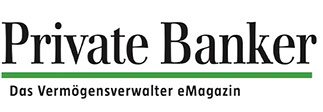

Value Column von Hans Peter Schupp
2. FEBRUARY 2023
Hooray, interest rates continue to rise and stay high!
For value investors, the current interest rate level and the central banks‘ policies are a real reason to rejoice. After all, during the long period of zero or even negative interest rates, the focus was solely on the money market interest rate. But this is irrelevant as the discount factor. More important is the capital market interest rate, i.e. the long-term interest rate with which future profits are discounted. In contrast to the past, central banks have kept monetary policy artificially low not only via the short-term interest rate, but also the long-term interest rate via bond purchases. They intend to change this going forward. The long-term interest rate is thus left to the capital market – supply and demand. Consequently, interest rates should rise again at the long end when the „market-determining buyer“ ceases to exist. And that interest rates will continue to rise and remain high for quite some time to come has been made clear time and again by both the Fed and the ECB.
Expensive real estate or high-yielding stocks?
What does that mean? The only way to protect ourselves from this is to make real investments. That means real estate, for one thing. But you don’t usually have the „small change“ for real estate lying around. So you need a mortgage. But with high interest rates, this is an expensive business. And don’t forget: Construction prices rise during the construction period. So you can’t calculate reasonably and realistically.
Another real investment is shares, i.e. participations in real existing companies. But unlike the last 15 years, when growth stocks were in focus, inflation now favors low-valuation stocks rather than high-priced growth stocks. Why? Future earnings must now be discounted at significantly higher interest rates. This significantly reduces the present value of future profits. On the other hand, it means that if profits fall, this plays less of a role in the present value than if interest rates continue to rise. And this interest rate sensitivity affects growth stocks in particular, since here profits are only expected in the future. This is in stark contrast to value stocks, which are already making profits today. Some companies are even highly profitable.
Savencia, the highly profitable cheese empire from France
One example is Savencia. Well, probably very few people know this name. But the products are certainly well known. Savencia SA, headquartered in Viroflay near Paris, is a family-run dairy company that specializes entirely in cheese. In Germany, as in many other countries, it is even the market leader with brands such as Géramont, Fol Epi, Saint Albray or Milkana, Bresso, or Le Tartare, just to name a few. The company has been delivering stable earnings for years, after all, food is part of everyday life. The P/E ratio is 6.5, which means a yield of over 15 percent. And the book value is just 0.5. But the special thing is: Savencia is the most conservative family-owned company you can imagine. And the only reason it is listed is explained by the family, whose cheese empire turns over more than 5.6 billion euros a year, with the succinct sentence: „The stock exchange represents the best control for our company. That’s the only reason we’re listed!“ A reassuring argument from an investor’s point of view.
K+S, the new earnings gem from Upper Hesse
Another example is K+S. A few years ago, no investor would have touched the shares of the Kassel-based salt and fertilizer producer with a pair of pliers. The reason was the very high level of debt. Among other things, this was due to the new potash mine in Canada, the construction of which had swallowed up a great deal of money. However, this debt has since been reduced, as the salt business in the USA was sold at an unexpectedly high price. The company is now debt-free and even has some cash on hand. In addition, K+S has managed to continue operating its German mines with a new technology. The mine in Canada is being further expanded and will only reach its maximum production capacity in about 15 years. And last but not least: Last year, many farmers refrained from using potash fertilizers because of the high prices. But that will only last for one year. Demand will be correspondingly high this year.
Incidentally, the reluctance of farmers caused the share price to fall from 35 to less than 20 euros. This is where we benefit from the fact that we are not day traders, but deep value investors with staying power. We have been holding our portfolio stocks for longer than just 24 hours!
Translation for convenience only!
The author: Hans Peter Schupp is a board member of FIDECUM AG and portfolio manager of the Contrarian Value Euroland fund.

